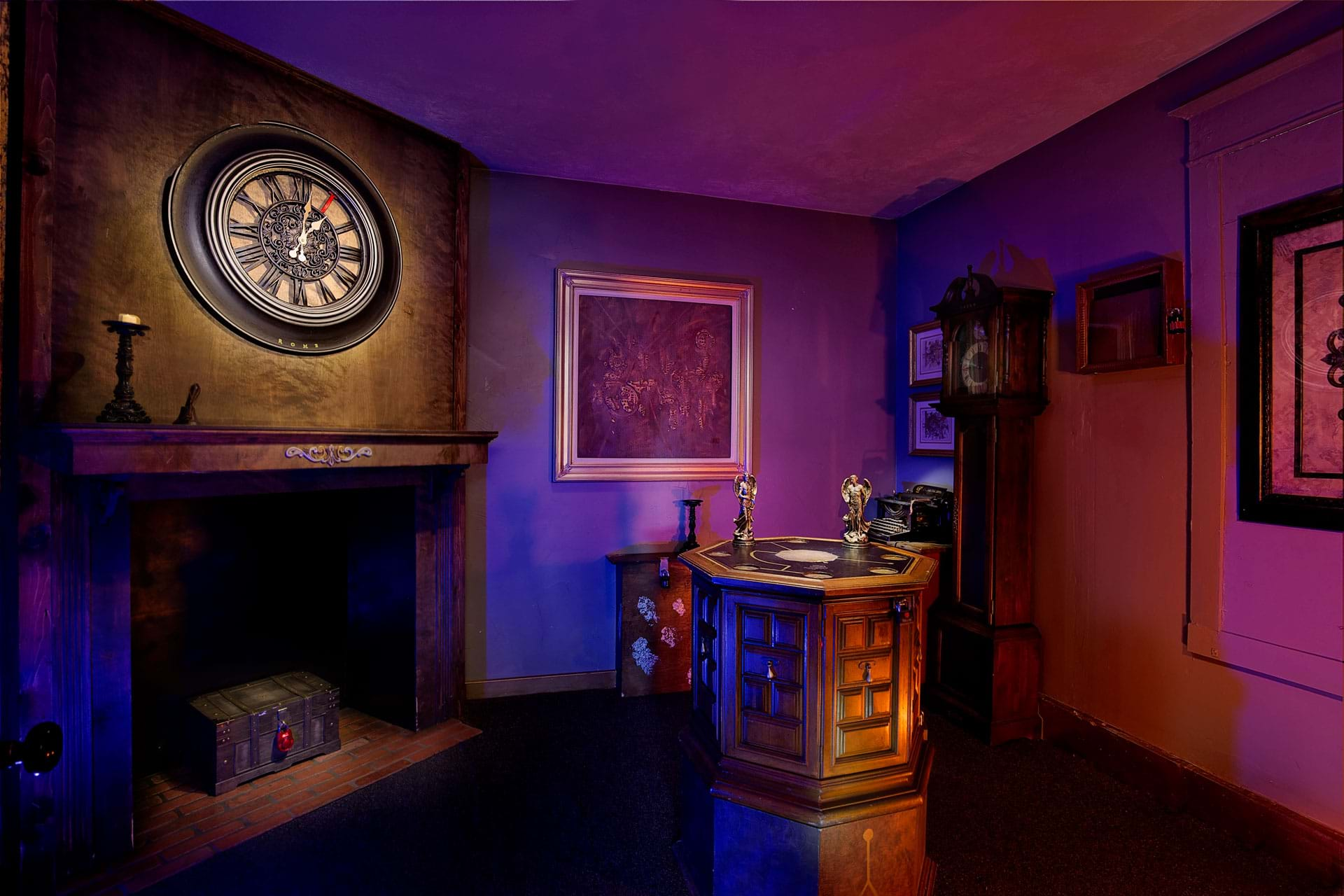Check Out the Best Escape Room in Minneapolis-- Book Your Experience
Wiki Article
Group Methods: How to Work together Efficiently in a Getaway Space
Groups must actively listen to each member's understandings, appoint functions that line up with individual toughness, and maintain routine check-ins to ensure emphasis and avoid redundancy. By promoting an environment that values cohesion and adaptability, groups can considerably enhance their efficiency and success prices.Establish Clear Communication

To promote clear communication, it is important to mark a central factor of contact for details dissemination. This role entails summarizing searchings for and suggested approaches to guarantee every person stays on the exact same web page. Furthermore, taking on a systematic technique to conversations can avoid disorderly exchanges. Quick, focused updates from each team participant can maintain the team educated without overwhelming them with info - best escape room.

Appoint Functions Strategically
While clear interaction sets the structure for efficient synergy, assigning functions purposefully makes sure that each team participant's strengths are made use of efficiently. In a retreat space scenario, the time-sensitive and complicated nature of challenges requires an efficient method to job delegation. By identifying and leveraging specific proficiencies, teams can optimize their analytic capabilities and boost total performance.First, evaluate the distinct abilities and attributes of each participant. As an example, a person with a keen eye for detail might master locating covert objects, while a rational thinker might be better suited to resolving puzzles - best escape room. It's similarly essential to have a leader who can look after progress, handle the timeline, and make crucial phone calls when required. This function typically calls for strong organizational and social skills.
2nd, ensure that duties are adaptable and versatile. As new obstacles arise, the team should have the ability to pivot, reallocating jobs as needed. This adaptability helps preserve energy and avoids traffic jams that might occur due to inflexible duty projects.
Eventually, a strategic approach to role assignment not just makes the most of the toughness of each employee yet also fosters a natural environment, driving the team towards an effective escape.
Make Use Of Diverse Skills
Acknowledging and harnessing the diverse skills within your team can dramatically elevate your performance in a retreat space. Each employee brings one-of-a-kind strengths to the table, and properly leveraging these abilities can speed up problem-solving and boost general effectiveness. A group participant with strong logical skills may succeed at decoding complicated codes or patterns, while an additional with keen observational abilities might promptly detect surprise hints that others might forget.
Reliable interaction is vital site here to making use of these varied skills. Encourage team participants to articulate their insights and ideas why not find out more quickly, ensuring that all potential options are thought about. This inclusive approach fosters a dynamic atmosphere where creative thinking and important thinking can flourish. Furthermore, appointing tasks that align with each participant's staminas can stop traffic jams and guarantee that progression is constant.
Moreover, diversity in abilities commonly converts to variety in believing designs, which is invaluable in a getaway area setting. While some difficulties may call for rational thinking and accuracy, others may take advantage of imaginative and side thinking. By acknowledging and leveraging this diversity, teams can deal with a wider series of difficulties better, thereby boosting their opportunities of a successful retreat.
Manage Time Effectively

First, allocate initial mins for a fast survey of the room. Recognize visible puzzles and separate jobs based upon staff member' toughness, ensuring that nobody is still. Establish inner time checkpoints to assess development regularly; for circumstances, goal to have half the puzzles addressed by the mid-point of the video game. This practice can help keep the group concentrated and protect against time from escaping undetected.
In addition, prevent passage vision. If a problem is taking also long, revolve team members or carry on to an additional difficulty, returning later on with fresh point explanation of views. Interaction is paramount-- keep everybody updated on resolved challenges and staying tasks to prevent repetitive efforts.
Finally, use any tips or hints moderately however tactically - best escape room. Knowing when to request for aid can save beneficial time. By sticking to these time administration concepts, teams can considerably improve their chances of a successful and enjoyable getaway room experience
Debrief and Mirror
Reflection is a crucial element of group advancement and renovation in the context of escape areas. As soon as the difficulty is completed, whether efficiently or not, it is crucial for the group to participate in an organized debriefing session. This process allows employee to evaluate their performance, recognize strengths, and identify areas for renovation.Begin the debrief by reviewing what worked out. Highlight details instances of efficient communication, analytic, and cooperation. Recognizing these positive habits reinforces them and motivates their repetition in future obstacles.
Next, address the barriers experienced. Review minutes of confusion, miscommunication, or inefficient approaches. Encourage an open and useful discussion where group members can share their viewpoints without anxiety of criticism. This fosters a society of constant renovation and understanding.
Final Thought
In conclusion, successful collaboration in a retreat space is based upon clear communication, strategic role jobs, the efficient utilization of varied skills, and efficient time monitoring. By developing a natural and flexible team setting, the likelihood of efficiently fixing puzzles and achieving the objective of escaping the space is significantly improved.Report this wiki page